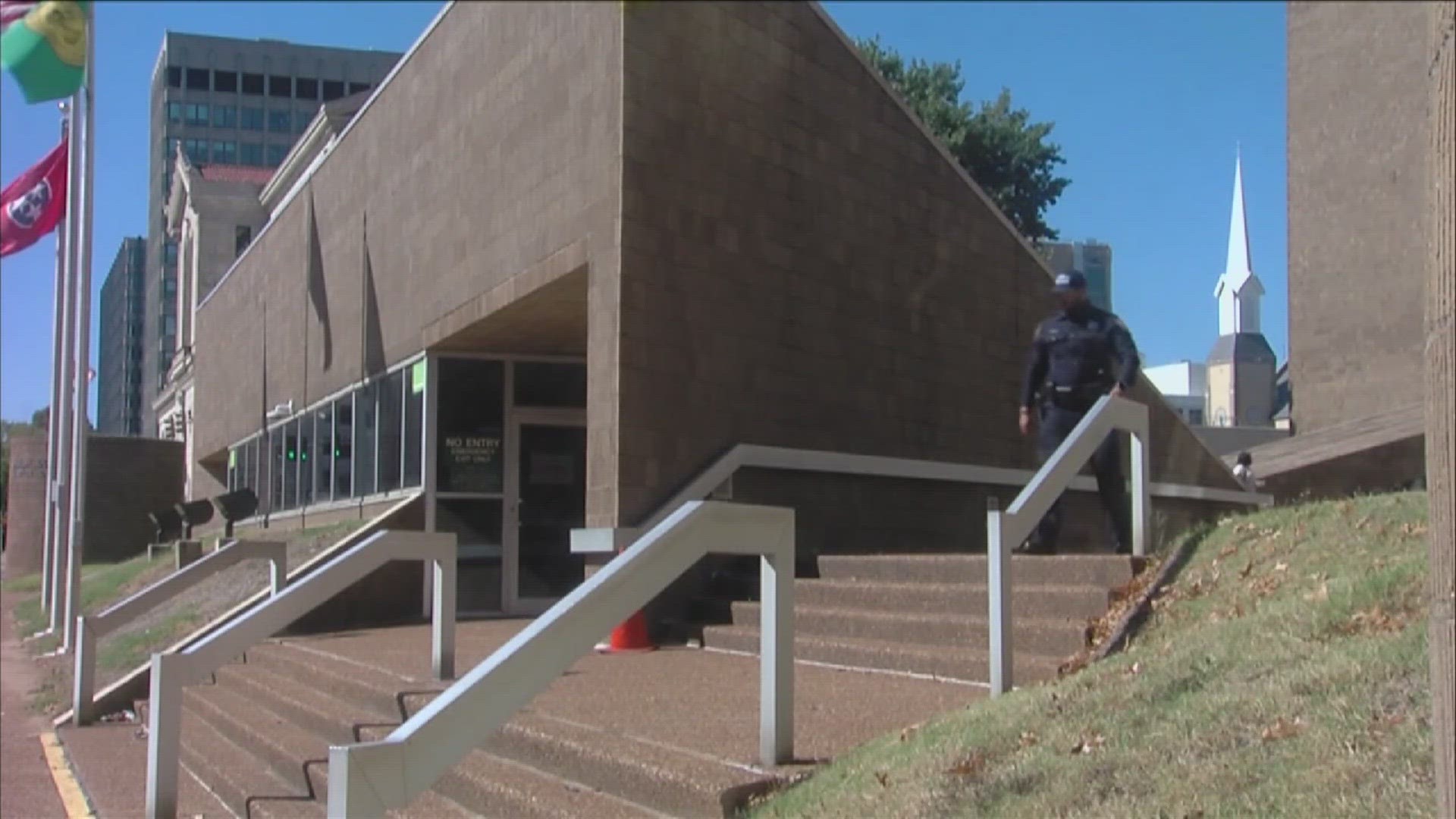NASHVILLE, Tenn. — Tennessee prisons are severely understaffed, with a vacancy rate at one prison of 61%, leading to unsafe conditions for both inmates and guards, a state audit of the prison system found.
The audit by the state comptroller's office also found a shortage of such prisoner services as therapy, substance abuse treatment, education and re-entry assistance. It also found problems safeguarding against sexual assault that included housing potential predators with potential victims, as well as a shortage of medical and behavioral health staff.
Some problems have surfaced repeatedly, including in audits from 2017 and 2020.
Auditors surveyed correctional officers at prisons operated by both the Tennessee Department of Correction and private contractor CoreCivic about how the staffing affects them.
"(W)e have no help and really if you get assaulted, you're going to get assaulted until the inmates get tired of beating you because there are really no (correctional officers) available to come help you out," one officer wrote.
The prison staffing problems persist despite years of efforts to attract and retain officers, including through pay increases, bonuses and relocation assistance. Turnover among officers at Trousdale Turner Correctional Center, operated by Brentwood, Tennessee-based private contractor CoreCivic, was 188% last fiscal year. Average turnover at CoreCivic facilities stood at 146% while state-run facilities had an average turnover rate of 37%.
Of the officers hired after bonuses were implemented, 44% left within 12 months, the audit showed.
Other responses from officers included, "While at Trousdale I feel unsafe at all times," and, "Correction Officers are working blocks by themselves. We haven't had partners in over 2 years."
Average correctional officer vacancy rates for fiscal year 2023 were 30% for state-run facilities and 42% for CoreCivic facilities, which house over a third of Tennessee's 19,000 prison inmates. (Another 3,500 are housed in jails.) The state-run Northwest Correctional Complex in Tiptonville had the highest vacancy rate at 61%.
At a recent legislative hearing, Correction Department Commissioner Frank Strada said the state has changed Northwest's leadership.
He added that the high turnover at CoreCivic facilities is partly due to staff rotating in from out-of-state for up to three months stints.
Both TDOC and CoreCivic relied heavily on overtime to fill vacant shifts, and CoreCivic paid Tennessee $10.8 million in fines for not maintaining minimum staff levels.
CoreCivic, which runs four Tennessee prisons on an annual contract worth upwards of $200 million, has paid the state some $20 million in fines since 2020. The company has deep roots in Tennessee and is a prominent campaign donor.
CoreCivic spokesperson Brian Todd said the state has "total transparency into our operations, and we will continue to work closely with them to ensure our administrative processes are fully compliant."
State-run prisons are helping fill shifts with the augmentee program, where other Correction Department staff take correctional officer shifts for overtime in addition to their regular jobs.
The program has inadequate training and supervision, according to the audit. It found participants claiming overtime who are contractually ineligible to receive overtime. At least one employee who claimed more than 1,800 hours of overtime through the program was not working his regular hours.
Many staffers working the augmentee program have higher base pay than the officers and make more for working overtime, a disparity the audit called expensive and unfair to correctional officers. It called reliance on overtime and the augmentee program "unsustainable."
Tennessee law requires prisons to deliver a "comprehensive program of rehabilitative treatment for offenders." However, many programs have limited capacity that effectively moves them out of reach. Waitlists for therapy and substance abuse treatment programs are in the thousands, leaving prisoners waiting months or even years.
Waitlists for educational programs are not as long but still in the hundreds. Meanwhile, CoreCivic facilities did not offer any post-secondary education or group therapy despite Tennessee's law requiring private prisons to offer services at least as good as those provided by the state. Department officials said there are plans for community and technical schools to work with CoreCivic inmates.
Offenders on probation and parole also have trouble accessing needed services. The audit found that 40% of offenders completing community supervision between September 2022 and February 2023 did not complete their risk-needs-assessment recommended or board of parole-mandated programming or meet with a social worker for mental health or substance use evaluation and treatment.
The audit also noted problems with the system meant to prevent sexual assault. Prisons are supposed to conduct an assessment at intake and every year thereafter to ensure potential assailants are not housed with potential victims. In many cases, that is not happening. The audit also found that both TDOC and CoreCivic failed to investigate sexual abuse allegations according to federal standards and department policy. In one example, CoreCivic closed 12 allegations before receiving the results of rape kit tests.
Asked by a lawmaker about whether TDOC should stop contracting with CoreCivic given the problems, Strada said no.
"We value CoreCivic as a partner," he said. "We have a need for CoreCivic. We have a need for those beds. ... When the contract runs out, if there's a still a need for those beds, then we send out a new contract and folks bid on it."

